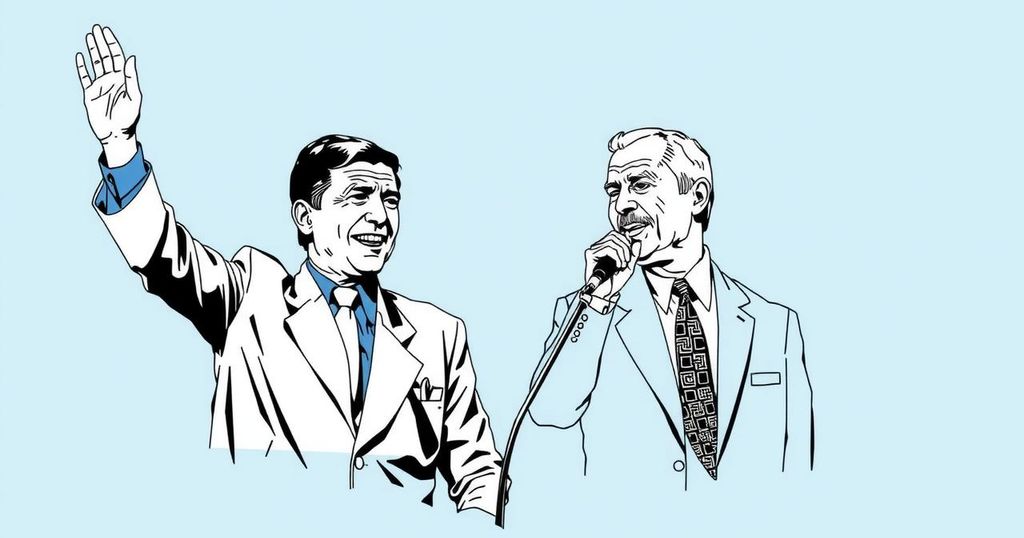World news
2024 ELECTIONS, ALVARO DELGADO, ARGENTINA, ASIA, BRAZIL, BROAD FRONT, COLORADO PARTY, DELGADO, ELECTION, ELECTIONS, LAC, LACALLE POU, MEXICO, NATIONAL PARTY, NORTH AMERICA, OR, ORSI, PHILIPPINES, PRESIDENTIAL ELECTION, ROSARIO GUSQUE, SENATE, SOUTH AMERICA, TRADE RELATIONS, VOTER TURNOUT, YA, YAMANDU ORSI
Ethan Kim
0 Comments
Uruguay Presidential Runoff: A Close Contest Amidst Political Moderation
Uruguay’s presidential runoff on November 24 pits center-left candidate Yamandu Orsi against continuity conservative Alvaro Delgado. Polls suggest a tight race with fewer than 25,000 votes expected to separate the candidates. Unlike more polarized politics in the region, Uruguay’s elections show relative moderation, which may influence voter decisions, particularly amid concerns over inflation and economic stability.
In a significant electoral event, Uruguay is gearing up for a closely contested presidential runoff on November 24, featuring opposition center-left candidate Yamandu Orsi and incumbent conservative Alvaro Delgado. Significantly, this election unfolds in a political landscape characterized by relative moderation compared to nearby nations, with an anticipated narrow margin of less than 25,000 votes expected to determine the outcome. The vote comes at a critical time, reflecting the ongoing global trend of incumbent parties facing challenges, although Uruguay’s robust economy may provide an advantage to the continuity candidate, Delgado. Polls indicate a lack of clear voter preference, with both candidates seeking to secure the support of undecided voters, while the political atmosphere remains stable and cooperative.
Uruguay, known for its progressive policies including legalized marijuana, is entering a key electoral phase, culminating in presidential elections. The country, with a population of approximately 3.4 million, has witnessed an electoral year of significance, marked by a second-round presidential showdown between two moderate candidates. This runoff follows initial rounds where neither candidate could secure a decisive majority, reflecting the complexities of contemporary political dynamics in Uruguay, situated within the broader context of regional electoral trends.
As Uruguay prepares to finalize its presidential race, the outcomes hinge on the ability of the candidates to connect with undecided voters and sway those who supported minor parties. The close race between Orsi and Delgado against the backdrop of a stable political environment highlights the unique context of Uruguayan politics amid global uncertainties for incumbent administrations. Regardless of the outcome, the election is poised to reflect significant trends in voter sentiment and political strategy within a changing electoral landscape.
Original Source: www.arabnews.com




Post Comment